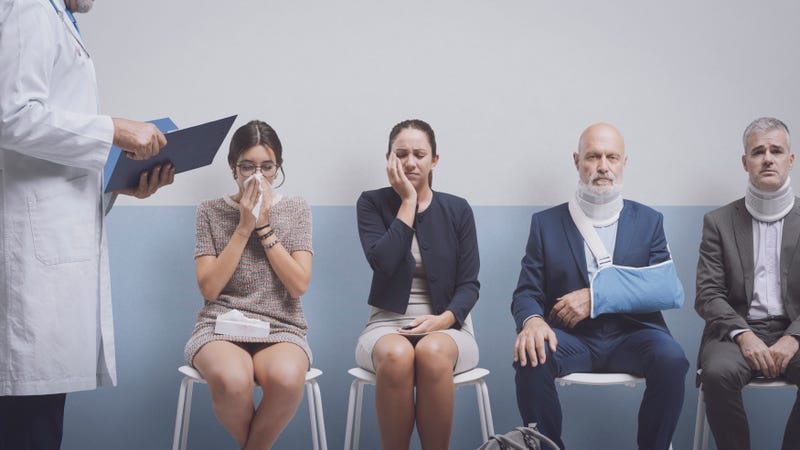
There are just a lot of sick people in Minnesota right now. Minnesota hospitals are reporting they are at or near capacity as they try to help patients sick with RSV, COVID-19, influenza and norovirus.
"We just want the public to know that that you may have to wait if you come into the emergency department," Minnesota Hospital Association President and CEO Fr. Rahul Koranne says.
Koranne adds they are asking people to consider using other means of getting care instead of the emergcy room.
"Such as connect with your primary care provider, consider a clinic visit or make an appointment with urgent care clinics so that that will reduce the burden on our emergency departments as well," Koranne explains.
He says adding insult to injury, many of the health care staff also are sick.
One illness that has been making the rounds post-holidays is norovirus. Numbers for that jumped up in December compared to the previous 12 months across the country.
“Minnesota’s hospitals and health systems are working together to coordinate the best care for Minnesotans when they need us,” says Koranne. “We know this surge is frustrating and stressful for patients and families, and we are asking for understanding as our care teams work tirelessly to meet these demands. Our top priority remains delivering safe, high-quality care to everyone who walks through our doors.”
Precautions to mitigate the spread of seasonal illnesses are needed now to ease the burden on hospital emergency departments, including:
Stay home if you or your family are sick.
Wash hands often.
Cover coughs and sneezes with a tissue or shirt sleeve, not your hands.
Clean frequently touched surfaces, such as doorknobs and mobile devices.
Avoid close contact with sick people.
Mask when appropriate.
Stay up to date on vaccinations.
Consider urgent care, a primary health provider, or telehealth options for non-emergency care, and have a primary care provider for your entire family. They suggest you stay connected and up to date with preventative care so that the primary care team can partner with you on all health care issues.
